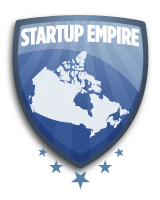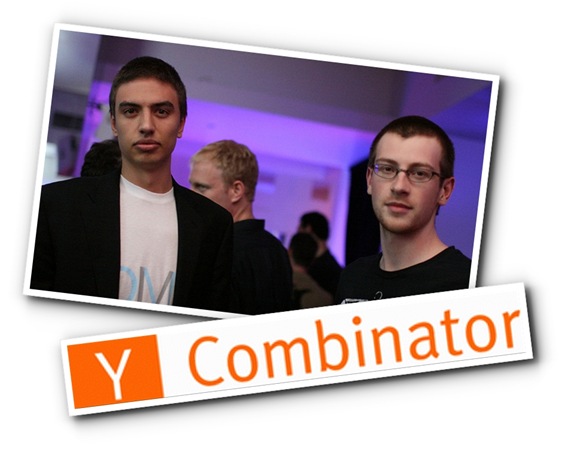Jevon and Jonas recently offered me the opportunity to interview two teams of Canadians currently attending Y Combinator for Startup North.
Y Combinator is a seed-stage funding firm that combines money, advice and connections with a 3 month program that operates in Cambridge & Mountain View. It has been responsible for a number of high profile successes and captured the attention of many investors and entrepreneurs with its innovative funding & advisory model.
Taking a small break to play W-Five correspondent (in my weak Lloyd Robertson impression) I asked Mike Marrone and Michael Parkatti to answer some questions about their Y Combinator experience. The interview is about their experience of joining Y Combinator and their soon to launch startup WildStabMedia (which they are not able to discuss in detail yet). Mike and Michael are also writing a column on the Globe and Mail detailing their experience.

1) What was your previous startup experience before deciding to apply to YCombinator?
Parkatti: Mike and I met while working at Cambrian House in Calgary. I left a comfortable career specifically because I wanted to find out what it was like to be involved with a startup. CH was the right kind of place to get that first startup experience with, because of the energy and passion everyone brought to work with them everyday. It felt like I was constantly meeting people who felt the same way I did about what constitutes a normal ‘career’ path. As great as that experience was, however, working at a startup can only show you what starting a company can be like… it doesn’t necessarily show you how to start one of your own. After leaving, we wanted to start something, but really had no idea where to start or how to raise funding. Eventually, we both had to get regular jobs and bide some time. After half a year of doing that, we applied to YC.
Marrone: Working at CH was awesome. It completely rejuvenated me about working in the tech industry. Before accepting employment with CH, which was my first startup, I was seriously contemplating switching professions. The experience at CH was a real eye-opener, where I got to work on exciting projects in an exciting atmosphere and met a ton of great people. Afterwards I couldn’t see ever going back to a regular job.
2) Tell us about the interview process for Y Combinator? What was it like, how was the competition and what about your interview & background do you feel gave you guys your chance to join the Y Combinator class over other applicants?
Parkatti: You apply to YC using a simple web form, answering each question succinctly. We’d spent a lot of time brainstorming new business ideas, and actually kept a long document of them all. In my opinion, coming up with good ideas generally begets coming up with better ideas. We were thinking of YC as kind of a long-shot… working normal jobs were wearing on us, and we both knew we had to do something entrepreneurial or something was going to give.
Finding out that we got the interview was one of the biggest thrills, because that’s the major bottleneck in the process to get into yc. They flew around 5 dozen teams to Silicon Valley and interviewed all of them in 3 days. Each team gets 10 minutes. We prepared for the interview a lot, and knew that the pitch was going to be compelling enough, as long as we were able to communicate it properly.
Basically, they just need to a) hear that you’ve got an innovative idea, and b) have confidence that you can actually build it. Mike and I had both put built and launched compelling side projects in the months prior to the YC applications, which I think let them know that we were capable of both.
Marrone: Basically went into the YC interview with the mindset that we were about to get a chance to get feedback from some of the people I respected the most. Anything on top of that was icing on the cake. I wasn’t worried about getting in or not. When they offered us investment we didn’t even have to think it over, the answer was obvious.
3) Beyond the limited funding Y Combinator provides there is a strong social & learning component of the program. Can you tell us so far what that has been like?
Parkatti: Y Combinator usually provides $5000 + $5000 per founder. The money affords time to work on the product… but the actual value in YC is the network of people you’re around and have access to every day. Our peer founders are all extremely intelligent people and give us fantastic insights at every turn.
You don’t learn about how to build your product — with only three months to make something that people want, there isn’t any time for that. What you learn is how to build a company. It’s a process that’s fairly ambiguous to outsiders, and gaining the confidence to know that it’s possible is a huge deal.
Marrone: So far the biggest thing we have gained is the extreme focus on defining our product. The chance to talk to PG and crew pays off in minutes what you couldn’t get elsewhere in hours. Literally talking to them for a few minutes, and listening to them speak at the dinners completely focuses you on getting your product out the door.
4) Soon you will be graduating from Y Combinator and presenting your startup to the world, is your goal to raise funds & stay in the Valley?
Parkatti: It’s hard to say what our next move is. Basically, whatever we need to do to make our startup a success, we’ll do. I’m sure we’ll raise funding at some point… but right now we’re concentrated almost exclusively on making a good product. Our goal is to create a successful company, and without a good product that’s literally impossible.
Marrone: My goal is to do whatever is needed to keep moving forward. If that means we want funding at some point then so be it, but that remains to be seen.
5) I know you can’t discuss your actual project – but can you discuss a bit how you selected the area, triaged your ideas and focused on one that you felt had legs? So many people have ideas but have a hard time assessing if they are ‘worth much’ – you guys have gone right to the ‘execute on the idea’ phase, any big changes you’ve made once you started?
Parkatti: Coming up with good ideas is a bit of an art more than a science. First, you need to understand the Internet space and what sorts of things can get enough traction. That’s understanding your market. Second, you need to know your technical ability well enough to know what’s possible to build — that’s knowing your capability. Third, you need to know that your idea can actually make money at some point.
And our idea has already changed quite a bit as we’ve built it. I think if an entrepreneur’s idea doesn’t change much from planning to implementation, that’s more of a bad sign than a good one. On the internet, building a simple product with an easily understood value proposition is key. You need to distill a product into its basic elements, and strip out all of the unnecessary details.
6) Having worked in Canada in the startup & technology worlds – what’s the perception of doing startups in Canada among the other Y Combinator applicants and program leaders? Any thoughts of your own on the good & bad points of doing Internet startups in Canada from your perspectives?
Parkatti: To be honest, the Canadian startup community seems to be almost entirely unknown here. There’s obviously smart Canadian entrepreneurs … but I think it’s harder to break into that ‘inner circle’ in Canada to gain credibility. In the States they understand that it’s the entrepreneurs that provide the lifeblood of the community with innovation. Without entrepreneurs, that ecosystem simply doesn’t exist.
In Canada, I feel like the interpretation is different. Someone here mentioned the other day that you should never feel like investors are giving you the permission to start your business…. only you have that power. In Canada, it feels like you do need someone else’s permission. That’s not to say that Canadian startups can’t be successful, because they obviously can be … it’s just that the environment is different.
7) One thing Y Combinator is known for is the speed & focus they create by constraining resources & dropping you into an environment that is 24/7 living & breathing your startup dreams. How has that pace & focus been for you guys?
Parkatti: It’s been perfect for us. We execute quickly, so being able to concentrate on our product for 10 weeks affords us time to really perfect it. We’ve both built products in our spare time before, and most of the time you just feel exhausted. Right now, it feels invigorating being able to obsess about it and get it right.
Marrone: You don’t realize how few days you have until you actually count them. After that you don’t really feel the pace of working all day because you are just focused on getting what you need done before your time runs out before Demo Day.
8) Final Question – Any advice for other aspiring entrepreneurs in Canada who are thinking about Y Combinator or starting their own startup?
Parkatti: Start building something — preferably something you’d like to use yourself. Learn how to code. If you don’t know how to code, find friends who can. The more ideas you have and the more ideas that you make into reality, the better you’ll be at both processes.
YC is great for getting credibility — because you’ve already been pre-filtered by extremely intelligent people. But we were planning on making our product anyways, and that’s the mindset you should have. You’ll find that when you have no connections, or experience, or capital, the one thing that gives you any credibility at all is results. If you have a product with traction, you have printed your own golden ticket. And you don’t need anyone’s permission to do that except your own.
Thanks to Mike & Michael for taking the time to do this interview. We’ll be following up with them after Y Combinator Demo Day.
Next up from will be an interview with with Christopher Golda & Michael Montano two Canadian entrepreneurs who are also attending Y Combinator this semester.
Austin Hill is the CEO of Akoha and a guest contributor to Startup North.

![Reblog this post [with Zemanta]](http://img.zemanta.com/reblog_e.png?x-id=8b6e04c7-d6dd-4549-933a-7d6c7eee9875)

